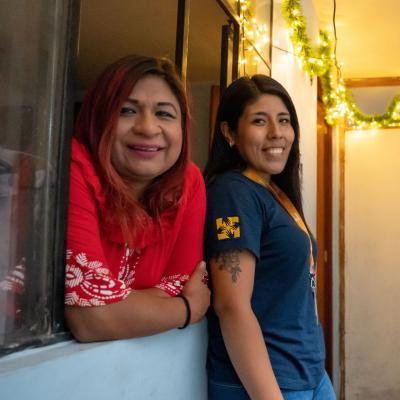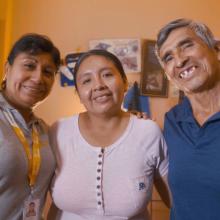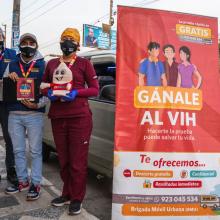A front rarely addressed in the transgender population is mental health. While as a civil society we tend to focus on treating sexually transmitted infections (STIs) to which this community is exposed, at Socios en Salud (SES) we know that it is also important to assess how a social background marked by violence can affect it.
This perspective stems from our belief that the right to health is associated with other human rights, such as participation, education, food, etcetera. Hence, we focus our services on initiatives that combat social injustice and stigmas from science and work with all actors in the health system.
The transgender community, precisely, is one of the most stigmatized in society. There are several studies conducted abroad that evidence their vulnerability, including the higher prevalence of mental health conditions among transgender, non-binary and gender-diverse adults compared to their cisgender peers.
In Peru, however, research addressing this issue is a pending task. The scarce medical literature on the subject does not allow us to fully observe its complexity. For this reason, SES decided to fill this gap with a study linking the presence of mental illness in trans women with the experiences of discrimination they have gone through.

Alexia nunca se había realizado una prueba de VIH hasta diciembre de 2022, cuando se encontró con una campaña de salud de JunTrans de Socios En Salud. Desde entonces, gracias al respaldo que ha recibido, se mantiene estable mediante su tratamiento antirretroviral.
A necessary study
In 2021, in the context of the pandemic, at SES we conducted the first survey to record the frequency of depressive symptoms in a significant sample of trans women, who live in vulnerable conditions and face health stressors such as violence and discrimination in different settings.
The findings are compelling. Of the 112 participating respondents, 95.5% reported experiencing discrimination based on their gender identity in judicial and police precincts, as well as in family and health care settings. Meanwhile, 83.8% reported experiences of violence for the same reason, especially in educational establishments and recreational areas.
The study shows that all these episodes influence the mental health of trans women, as 81.2% of the respondents were diagnosed with depression. In addition, among those who are HIV patients, 78.2% presented depressive symptoms. A figure higher than the results of similar surveys conducted in the United States and Brazil.
“These data show the importance of being able to implement public policies in favor of mental health and non-violence and discrimination towards this population,” says Renato Errea, head of the HIV Program at SES. Therefore, the research calls for the public health system to integrate mental health interventions in the treatment of trans women with HIV.
This accompaniment, the study suggests, could be applied locally by non-specialized health workers within routine HIV care services. An initial step that would help reduce gaps in access to mental health care and improve adherence to treatment.

Gracias al apoyo de Socios en Salud, Brenda Mijahuanca, una mujer transgénero de 35 años, recibió atención especializada al ser diagnosticada con depresión y ansiedad, lo que resultó en mejoras significativas en su salud mental y un aumento en su autoestima.
Partners In Health Priority Communities
At Partners In Health (PIH) & Partners In Health we believe that all human lives are equally valuable and every person has an inalienable right to be healthy. However, in a world where social injustice is rife, there are several groups that are denied access to the benefits of modern medical science.
We decided to encompass all of them as our “priority communities,” focusing especially on communities living in poverty and extreme poverty. These are historically vulnerable groups that require all our efforts and commitment to help them fight against the inequality of which they are victims.
They are our reason for service and accompaniment:
- Women
- Children
- Adolescents
- LGBTBQ+ population
- Sex workers
- Migrants
- Indigenous population
- People deprived of their liberty (PPL)
No matter how impossible or difficult this task may seem, we at SES are driven by the mission to bring to each of these communities the cure against injustice.



